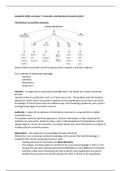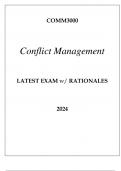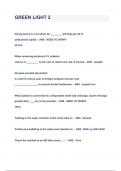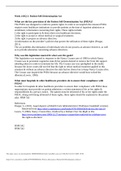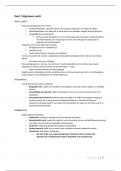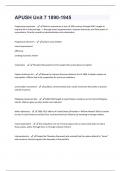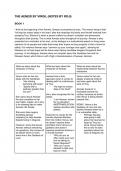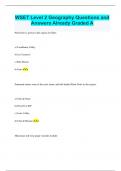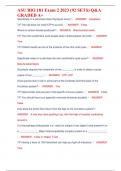Samenvatting
Summary Academic Skills EBE + IBA - Compulsory literature + lectures
- Instelling
- Vrije Universiteit Amsterdam (VU)
This is a comprehensive summary of the compulsory literature and lecture slides of the course Academic Skills. Economics and Business Economics and International Business Administration (IBA) at the VU.
[Meer zien]
